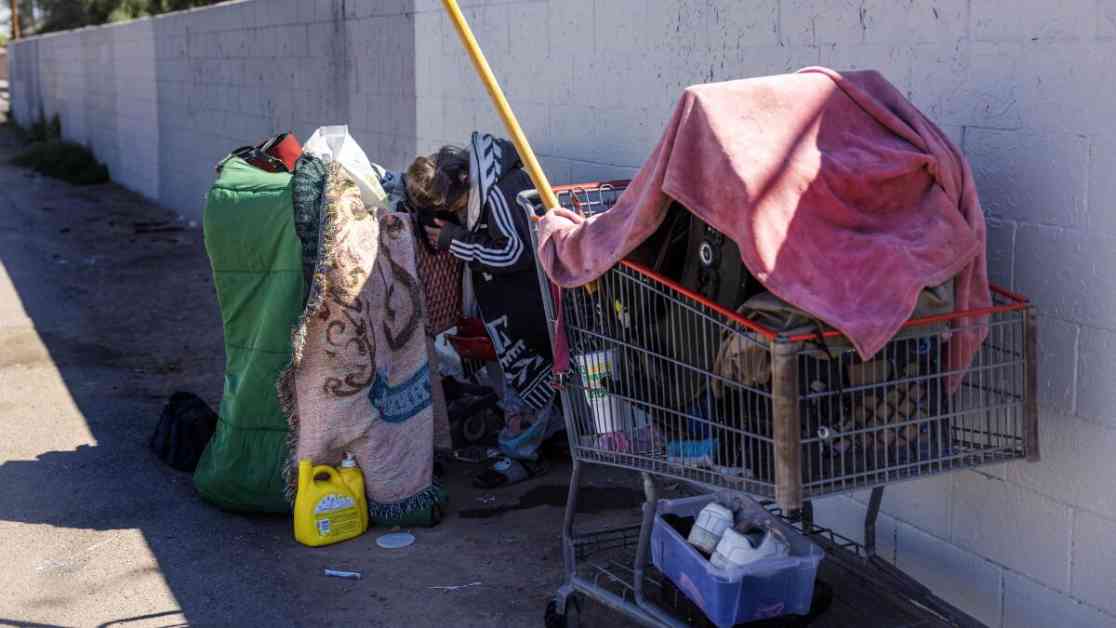Arizona voters have made a significant decision by approving a ballot initiative that aims to crack down on homeless encampments, setting a potential trend nationwide. The initiative, which is set to take effect on January 1st, will provide tax rebates to property owners who can prove monetary damages caused by the local government’s failure to enforce nuisance laws. While the practical impact of this measure on tax collections remains unclear, it holds symbolic significance as cities across the country grapple with a growing homelessness crisis.
Supporters of the initiative believe that it will hold local governments accountable and push police departments to take more aggressive actions to dismantle encampments. On the other hand, advocates for homeless individuals argue that the focus should be on building more housing rather than punitive measures. They claim that homeless individuals are unfairly targeted and stigmatized by such initiatives.
Jenna Bentley, the director of public affairs for the Goldwater Institute, a conservative group that sponsored the measure, expressed that Arizona property owners are seeking change and accountability from their local government. She hopes that this initiative will serve as a message to cities that problems like homelessness, drug use, and public intoxication cannot be ignored.
While some groups and lawmakers from other states have shown interest in replicating the measure, the practical enforcement of the law may prove to be challenging. The law allows property owners to seek rebates for expenses related to the enforcement of laws against loitering, panhandling, camping, and public drinking. However, the process of enforcing the law has not yet been established and could pose logistical difficulties.
Amy Schwabenlender, the chief executive of a Phoenix-area homeless services group, expressed skepticism about the effectiveness of the measure. She believes that the threat of arrest will only compel homeless individuals to move around more frequently, making it harder for outreach workers to provide assistance.
The ballot measure reflects a larger backlash against strategies that prioritize housing individuals experiencing homelessness. It comes in the wake of a successful lawsuit that forced the city of Phoenix to clear a homeless encampment in downtown Phoenix known as “the Zone.” While the city remains committed to addressing encampments in a compassionate manner, the impact of the new law on the city’s budget is yet to be determined.
In contrast to initiatives in other states that increase funding for homeless services, the Arizona ballot measure takes a different approach by incentivizing property owners to take action against homeless encampments. The decision by Arizona voters may set a precedent for other states grappling with similar issues related to homelessness and public safety.



























